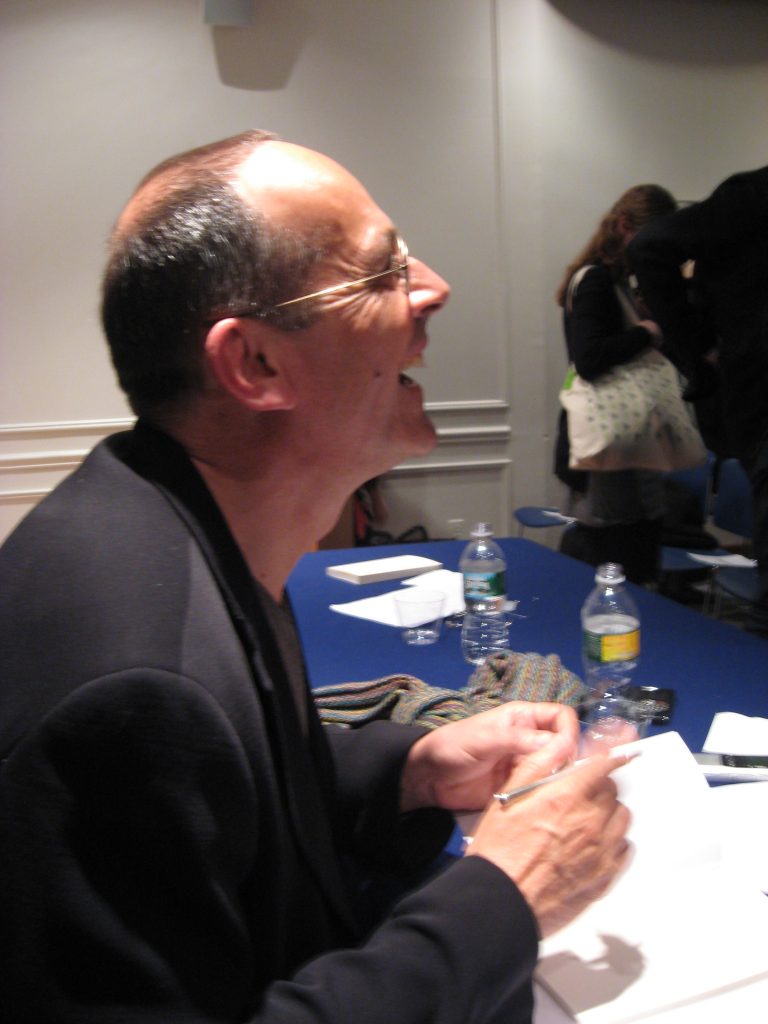I was sad to hear of the passing of philosopher Bernard Stiegler, who died on August 5. I could not have claimed him as a mentor or friend, but I consider myself something of a devotee and our paths did cross on a few occasions. I still recall first meeting him as an impressionable young scholar in his IRCAM laboratory off the Place Georges-Pompidou in Paris. Even with my broken French, he received me graciously in his balcony office overlooking rows of busy researchers. Years afterward a group of us at NYU brought Stiegler to New York in 2009 to speak on "New French Philosophy and Media Theory," where I fumbled through a response to his formidable lecture. After a conference in Paris a few years later, I found myself unable to attend a dinner at Stiegler's house, a social faux pas that set the tenor for the rest of our (non) acquaintanceship. Naively I asked him to blurb a book of mine but, alas, he politely declined. A friend of his confided in me that Stiegler was put off by my treatment of him in Les nouveaux réalistes (The New Realists), and that Stiegler refused to be labeled a "realist" of any kind. (Of course that was never my intention; Stiegler was the counterpoint there, not the specimen.) Later the missed connections turned into something of an absurd game, at least for me. Stiegler was scheduled to keynote a conference in Weimar last year where I was also in attendance, but he had to cancel at the last minute. Then similar arrangements were announced for an event in Italy two months ago that was also eventually canceled, this time due to Covid.
To celebrate Stiegler's life and his influence on me and many others, I wanted to upload the original audio file from my lecture "Bernard Stiegler, or Our Thoughts Are With Control." This was the second of five sessions collected in the pamphlet series French Theory Today, and later revised for French publication as Les nouveaux réalistes.
"Bernard Stiegler, or Our Thoughts Are With Control" (download mp3)
Also of potential interest is the informal "Stiegler glossary" I prepared several years ago to assist in wrangling Stiegler's sometimes formidable technical vocabulary. The glossary probably needs some updating, but might be helpful nonetheless particularly for those coming to his work for the first time. Most recently I had the opportunity to contribute (with co-author Jason LaRiviere) to a special issue of boundary 2 on the work of Stiegler under the heading "Bernard Stiegler: Amateur Philosophy."
Stiegler wrote about philosophy and technology, about fault and accident, about forgetting and remembering. He had his Derrida side, of course, but I always preferred the Heidegger side. He was a great champion of Simondon, which I suspect added to the allure in the English speaking world where Simondon had remained untranslated for so long. Stiegler has pride of place in the film The Ister (2004), one of the few decent films made about philosophy. At the same time Stiegler had an outsize influence in other disciplines like media studies, given how much attention he gave over the years to technology. "After Plato and Derrida, it was Bernard who became the pharmacologist of technology," wrote Yuk Hui a few days ago, and I leave it to him to recount his memories of Stiegler in this moving commemoration.
